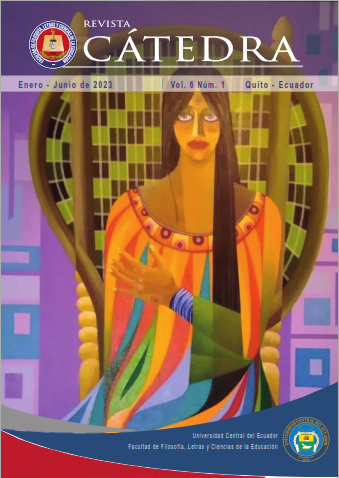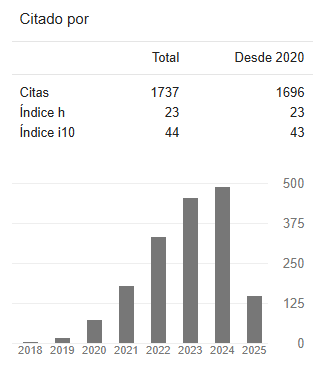The culture for the recognition of the identity: case of the fang culture of Equatorial Guinea
DOI:
https://doi.org/10.29166/catedra.v6i1.4282Keywords:
Culture, fang culture, personal self, cultural identity, recognitionAbstract
Culture is a manifestation that helps the recognition and identification of a certain social group or individual. It is defined as the set of manifestations that express the way of thinking, way of living, customs and intelligence developed by a social group. This paper clearly deals with culture in the Fang ethnic group of Equatorial Guinea. Therefore, the purpose of this research is to make known that culture is an essential and vital element for the Fang man, currently a lively collapse is being observed. As this research deals with a socio-cultural issue such as the Fang culture, it was necessary to adopt a qualitative methodology. The reasons that induced to apply this approach is because there are studies on social relations. One of the most relevant results is that all respondents believe that culture has an influence on the person. It must be said that in the current context, it is not possible to speak of a culture apart from a social group. And as the most revealing conclusion, there is the issue of the decline of the fang culture. It is noted that there are several reasons that are fueling this decline. Globalization and/or modernism are pointed out as causes.
Downloads
References
Adjoa, N., & Kouakou Kouamé, R. (2017). La identidad en la historia de los pueblos de Guinea Ecuatorial. La Razón Histórica (36), 37-50.
Bituga Nchama, P. B. (2021). Las relaciones de género en el sistema patriarcal fang. Una aproximación al estudiodel feminismo en la sociedad ecuatoguineana dentro del contexto africano. Buenos Aires: Editorial Biblos.
Bituga-Nchama, P. (2020). La conflictividad de la ideología feminista en la cultura fang: una aproximación al estudio del patriarcado en Guinea Ecuatorial. Revista Cátedra 3(1), 15-27.
Bituga-Nchama, P., & Nvé-Ndumu, C. (2021). La decadencia de las lenguas autóctonas de Guinea Ecuatorial: una manifestación de la pérdida de identidad cultural. Revista Cátedra 4(3), 35-56.
Boleká, J. B. (2003). Aproximación a la historia de Guinea Ecuatorial. Salamanca: Amarú .
Boleká, J. B. (2014). El auge y el declive de las culturas del África Occidental (o Atlántica). Vegueta, 27-84.
Eyama Achama, J. R. (2014). La Fundamentación de los Derechos Humanos en la etnia Fang. Revista Internacional de Pensamiento Político(9), 297-320.
Molano, O. L. (2007). Identidad cultural un concepto que evoluciona. Revista Ópera(7), 69-84.
Morey, M. (2001). Conjeturas sobre la máscara. Lápiz 117(7), 16-26.
Nsue-Mibui, R. E. (2005). Historia de Guinea Ecuatorial. Período pre-colonial (vida de los primeros habitantes de Guinea Ecuatorial). Madrid: Gráficas Algorán.
Ondo-Emerua, C. B. (2013). La dote ¿tradición de la etnia fang? En el barrio Los Ángeles ciudad de Malabo capital de Guinea Ecuatorial. Facultad Ciencias Sociales. Departamento de Sociología.
Paéz, D., & Zubita, E. (2001). Cultura y psicología social. Psicología social. Cultura y Educación, 1-40.
Picotti, D. (2005). El pensar de las culturas afroamericanas. Revista de CESLA(7), 45-62.
Revilla-Carrasco, A. (2014). La identidad en el negroafricano a través del vínculo con la realidad. Revista de educaçáo e humanidades(5), 99-110.
Ron, J. (1977). Sobre el concepto de cultura. Quito: Instituto Andino de artes populares.
Tessmann, G. (2003). Los Pamues (Los Fang). Alcalá: Nuevo Siglo S.L.
Zamora, G. (2001). Globalización, lengua universal y traductores. ACIMED 9(2), 136-141.









